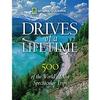Psychosocial Flashcards
Who developed Psychosocial Theory?
Erik Erikson

Where did Erik Erikson grow up?
Frankfurt, Germany
What brought Erikson to Vienna where Freud was?
Erikson was hired to teach art and other subjects to children of Americans who had come to Vienna for Freudian training
How was Erikson admitted into the Vienna Psychoanalytic Institute?
Through his teaching job in Vienna
What brought Erikson to America?
The facist movement
Erikson was Jewish
What aspects of Freudian theory did Erikson agree with?
- Psychosocial structures
- Unconscious and Conscious
- Drives
- Psychosexual Stages
- Normal-Abnormal continum
- Psychoanalytic Methodology
How did Erikson expand upon Psychoanalytic?
- Developed a set of eight psychosocial stages covering the lifespan
- Studying the development of identity
- Developing methods that reach beyond the structured psychoanalytic setting with adults
Example of how Erikson intergrated psychoanalytic with psychosocial:
Psychoanalytic: A toddler’s oral pleasure when making speech sounds
Psychosocial: the role of speech communication in shaping his relationship with his parents and significant others
What is cogwheeling of life cycles?
An adult’s needs to become caretakers coincide with children’s needs for caretaking
What psychoanalytic stage coincides with the psychosocial stage of Trust vs. Mistrust?
Oral-respiratory and sensory-kinesthetic
What psychoanalytic stage coincides with the psychosocial stage of Autonomy vs. Shame/Doubt?
Anal-urethral and muscular
What psychoanalytic stage coincides with the psychosocial stage of Initiative vs. Guilt?
Infantile-genital and locomotor
What psychoanalytic stage coincides with the psychosocial stage of Industry vs. Inferiority?
Latency
What psychoanalytic stage coincides with the psychosocial stage of Identity and Repudiation vs. Identity Difussion?
Puberty
What psychoanalytic stage coincides with the psychosocial stage of Intimacy and Solidarity vs. Isolation?
Genitality
Psychosocial Stages (in order):
- Basic Trust Versus Basic Mistrust (birth to 1 year)
- Autonomy Versus Shame and Doubt (2-3 years)
- Initiative Versus Guilt (4-5 years)
- Industry Versus Inferiority (6-Puberty)
- Identity and Repudiation Versus Identity Diffusion (Adolescense)
- Intimacy and Solidarity Versus Isolation (Young Adulthood)
- Generativity Versus Stagnation and Self-Absorption (Middle Adulthood)
- Integrity Versus Despair (Late Adulthood)
Stage 1: Basic Trust Versus Basic Mistrust (Birth-1 year)
Main task: aquire a favorable ration of trust to mistrust
Trust can predict that an infants mother will come back.
vs
Mistrust detects impending dangers or discomfort and discriminate between honest and dishonest persons.
Stage 2: Autonomy Versus Shame and Doubt (2-3 years)
New neurological and muscular development
AND
anxiety over seperation from parents and pooping themselves
Stage 3: Initiative Versus Guilt (4-5 Years)
Taking initiative, forming and carrying out goals, and competing
vs
severe conscience that punishes sexual fantasies and immoral thoughts or behavior
Stage 4: Industry Versus Inferiority (6-Puberty)
Children are excited about knowledge and work (I am what I learn) and being successful
vs
Failure brings feelings of inadequacy and inferority

Stage 5: Identity and Repudiation (truthfulness) Versus Identity Diffusion
(Adolescence)
Integrate the various identifications they bring from childhood into a more complete identity
vs
teenagers are trying out new identities through the identities of their different peer groups
Stage 6: Intimacy and Solidarity vs. Isolation
(Young Adulthood)
Only if a well-intergrated identity emerges from Stage 5 can intimacy with others be possible
Intimacy and “us against them”
vs.
failed attempts at intimacy that lead to retreatment

Stage 7: Generativity Versus Stagnation and Self-Absorption
(Middle Adulthood)
“Interest in establishing and guiding the next generation”
vs.
lack of generativity equals a lack in psychological growth

Stage 8: Integrity Versus Despair
(Late Adulthood)
Have to live with what you built over lifetime, ideally integrity
vs.
Regret for what one has or has not done in lifetime




